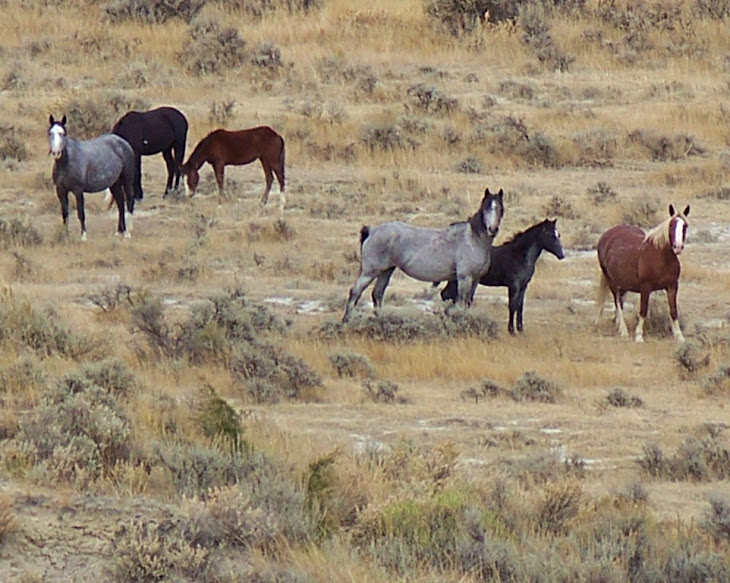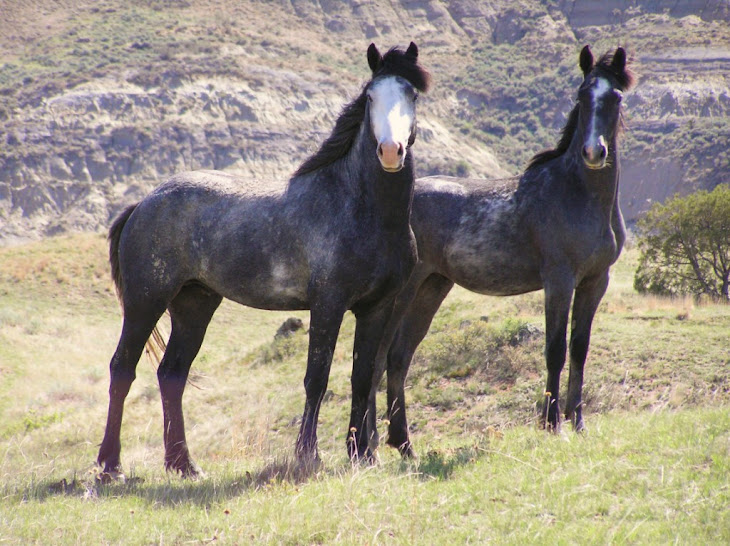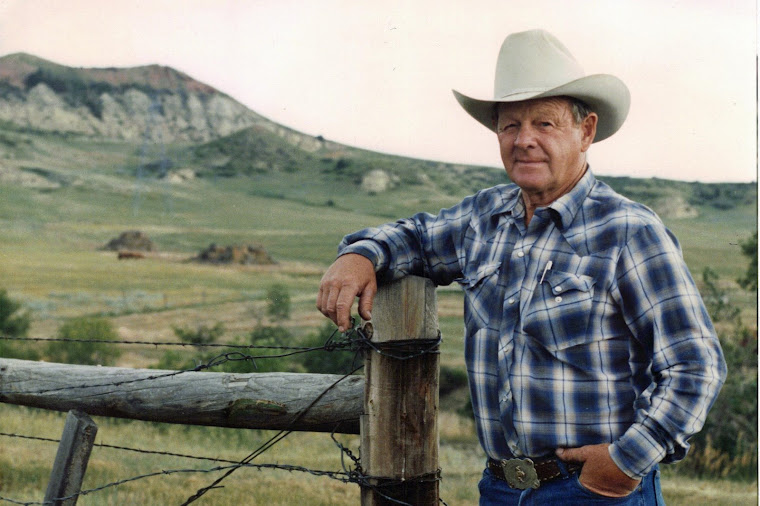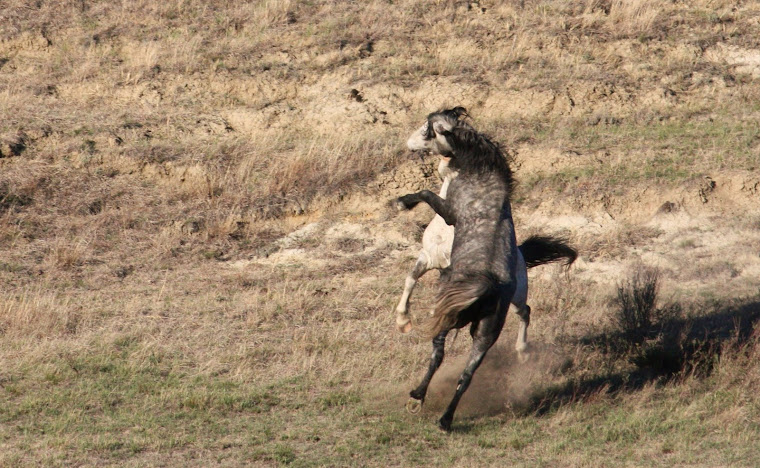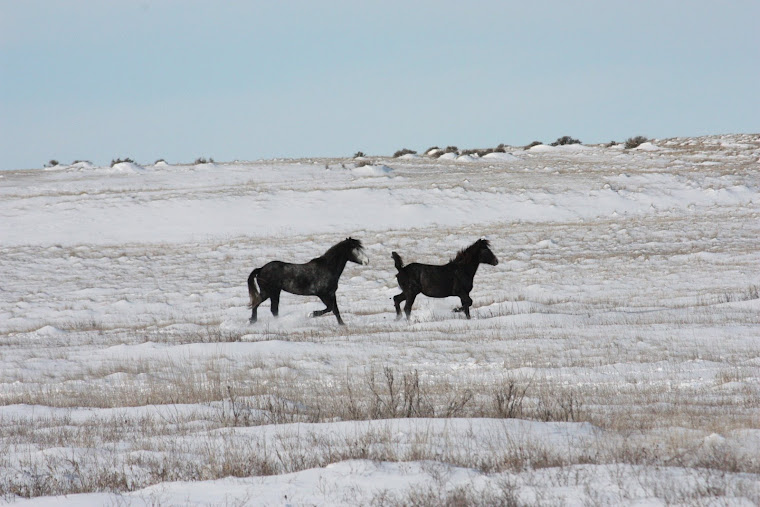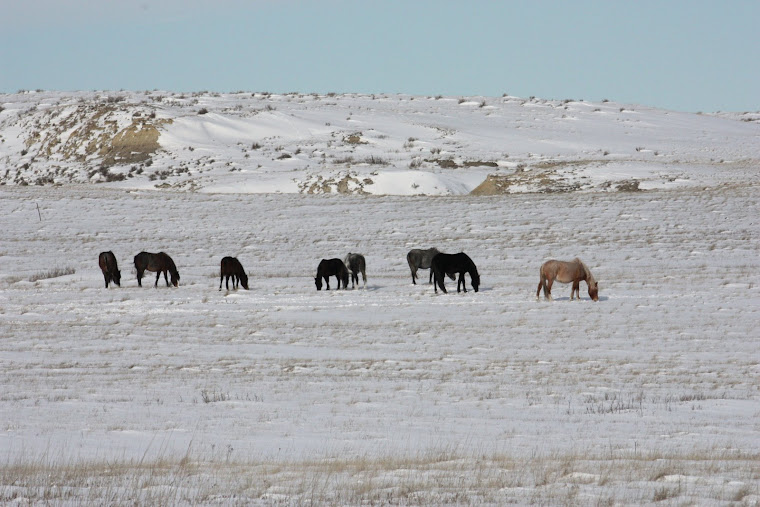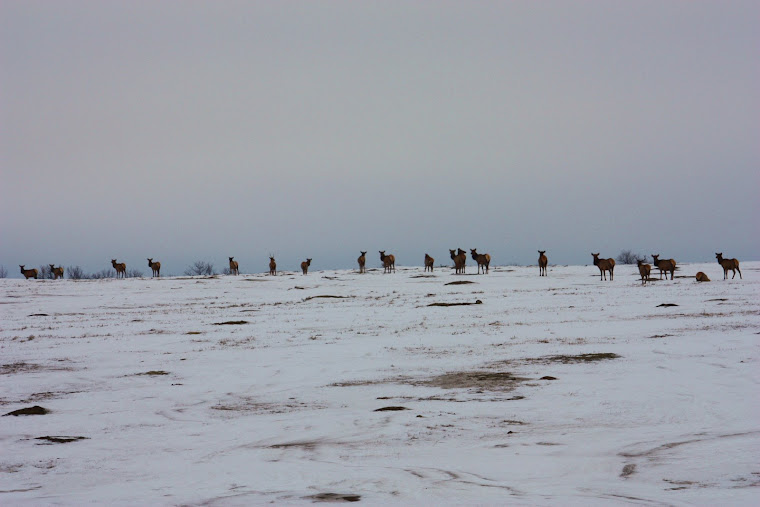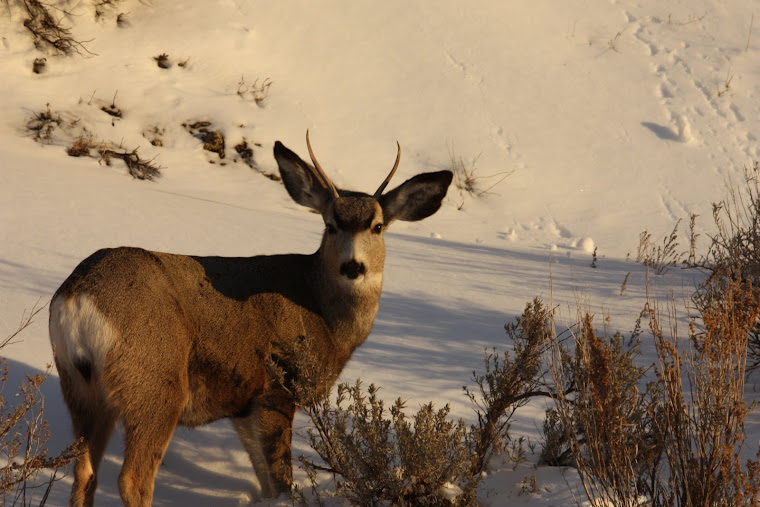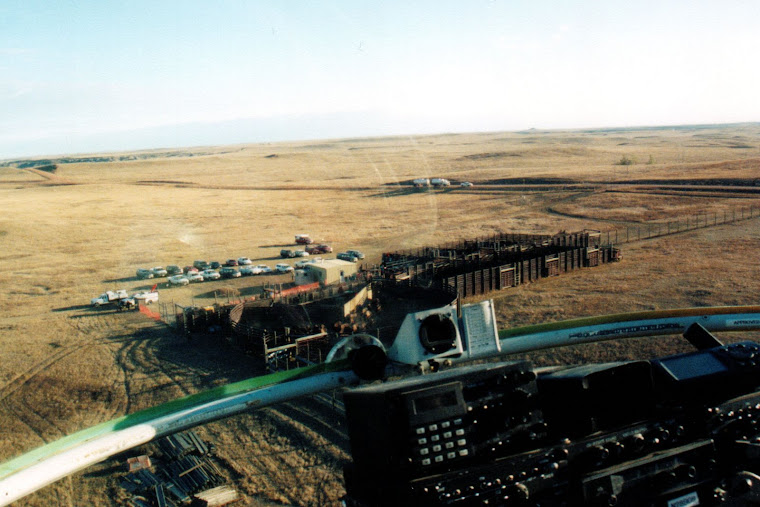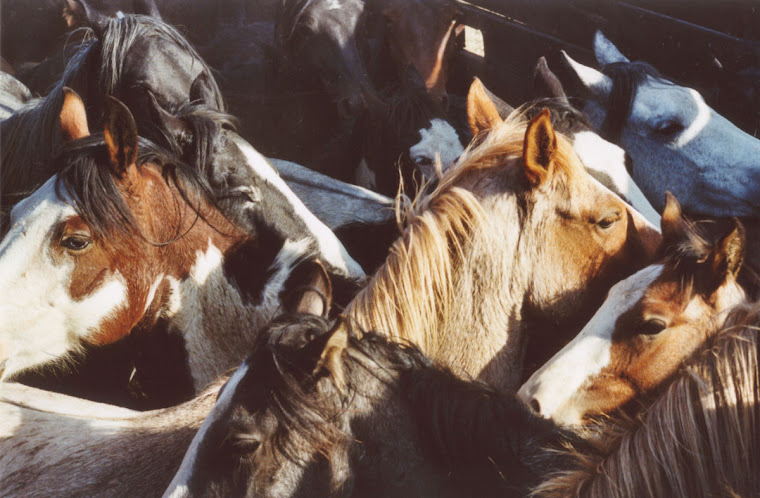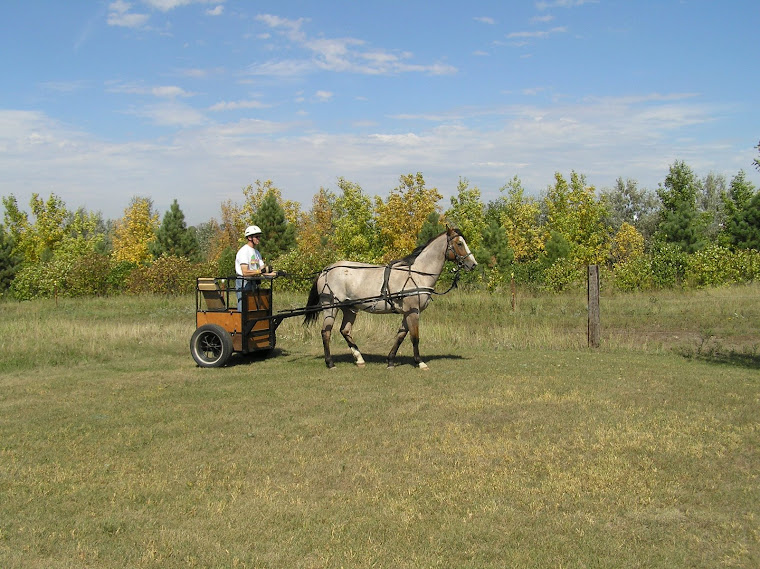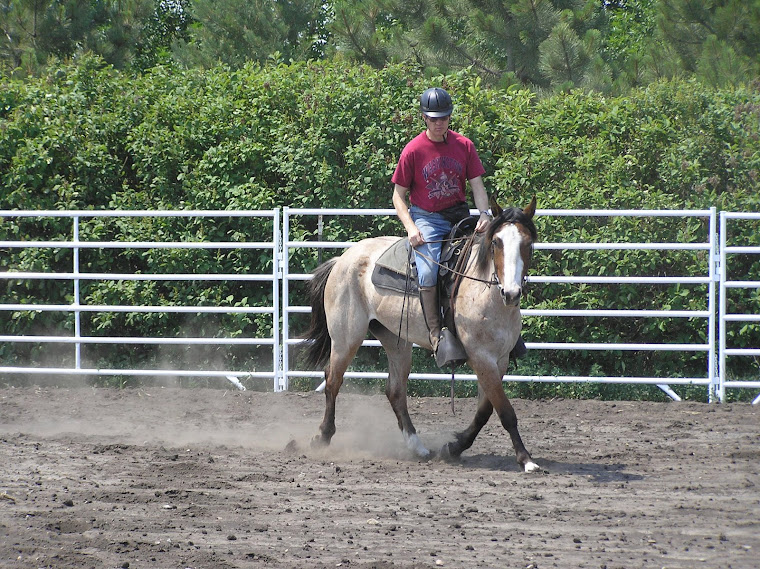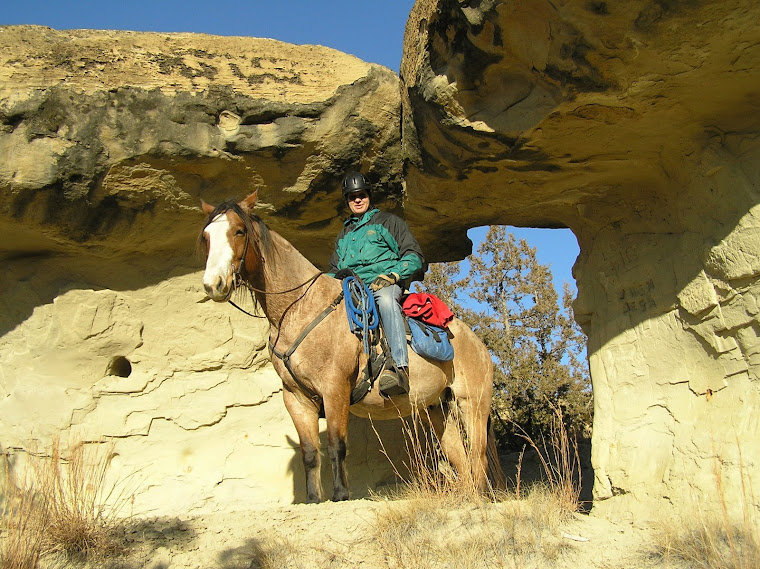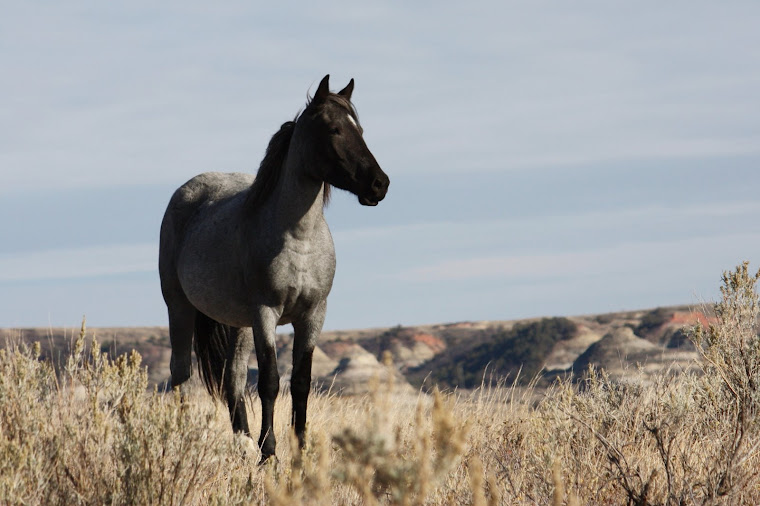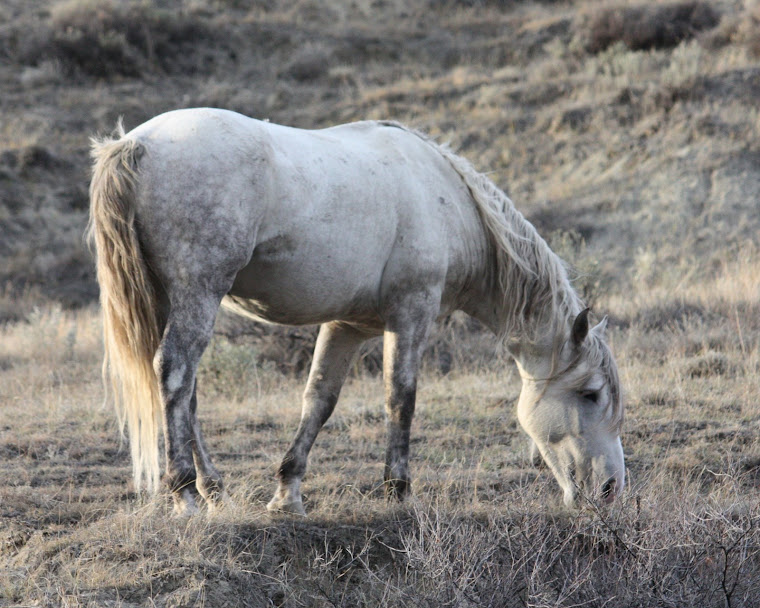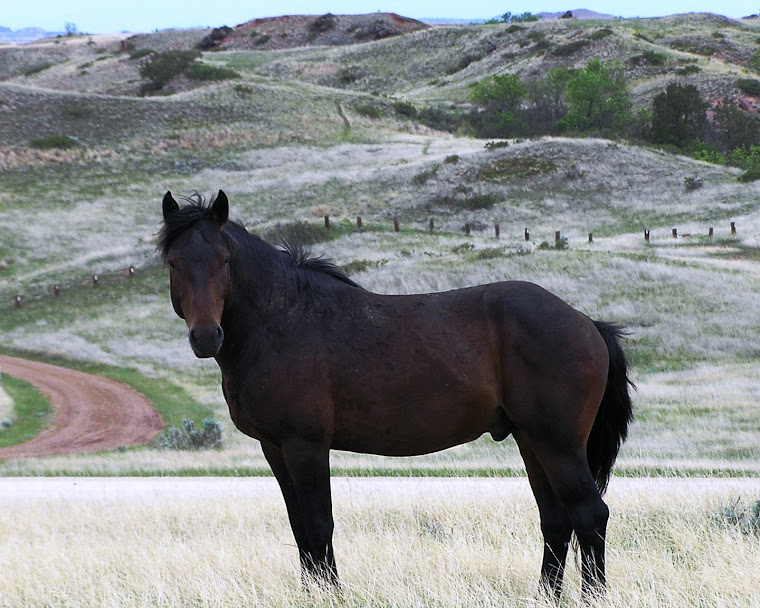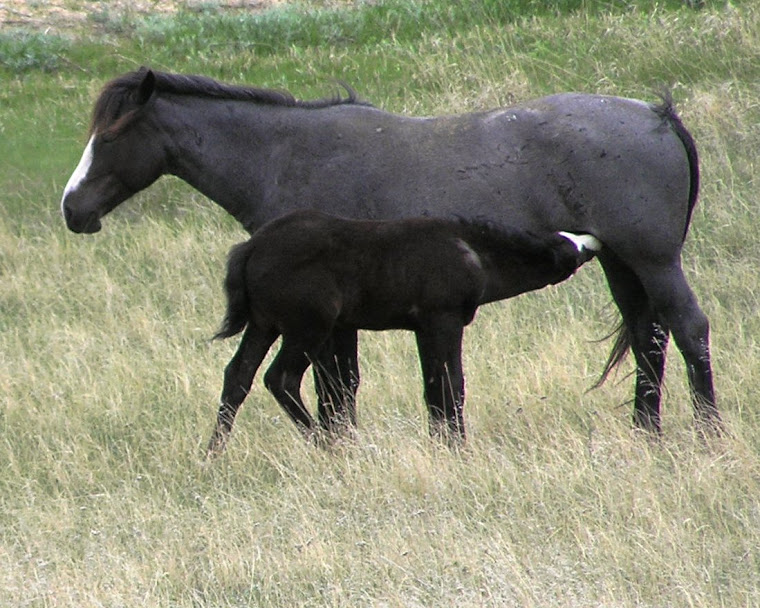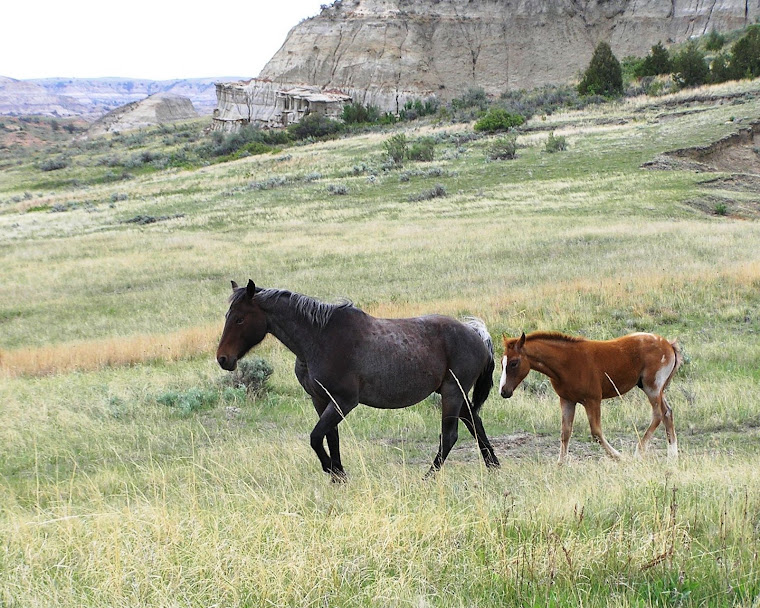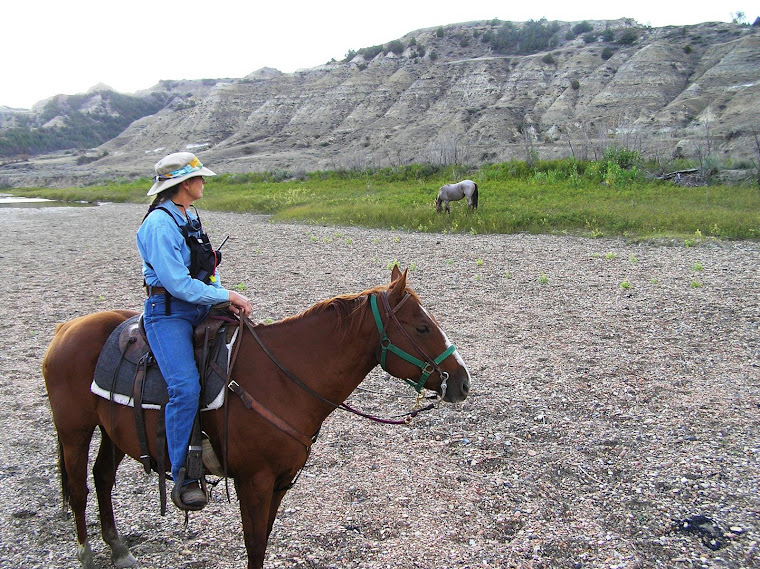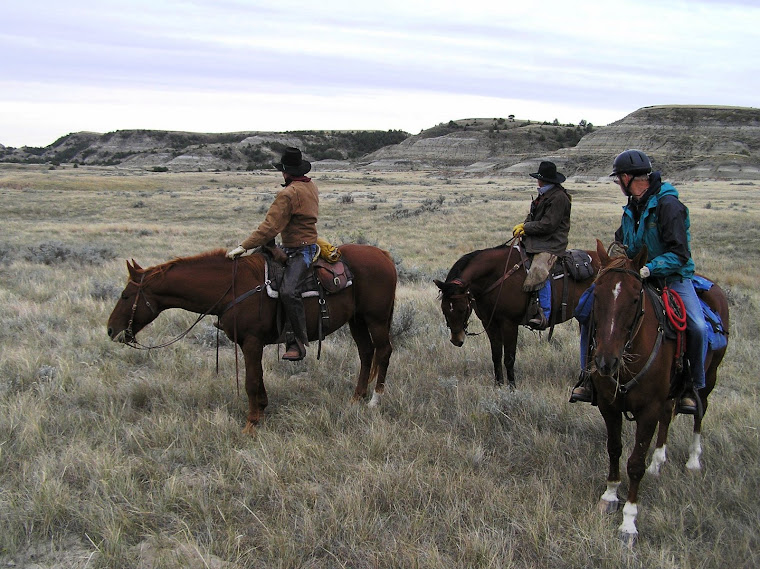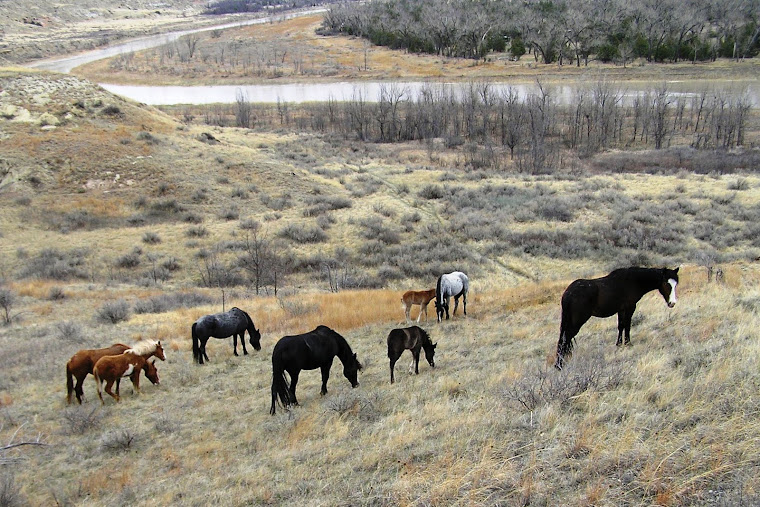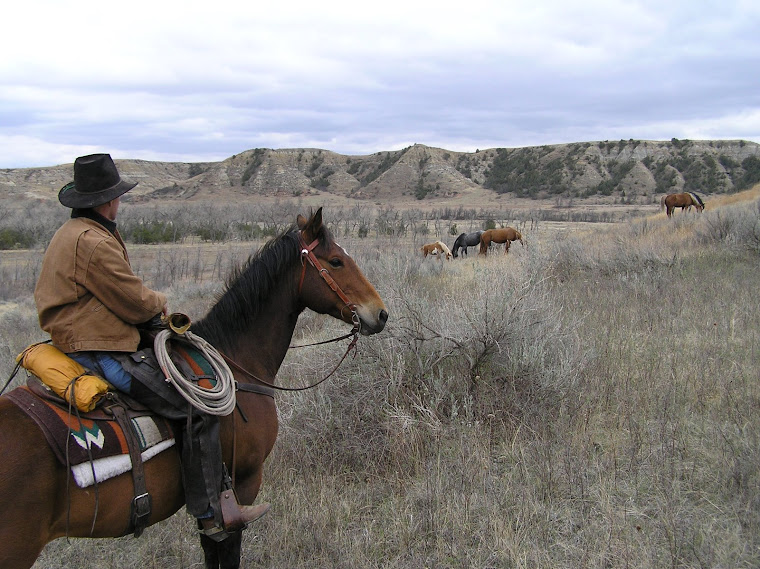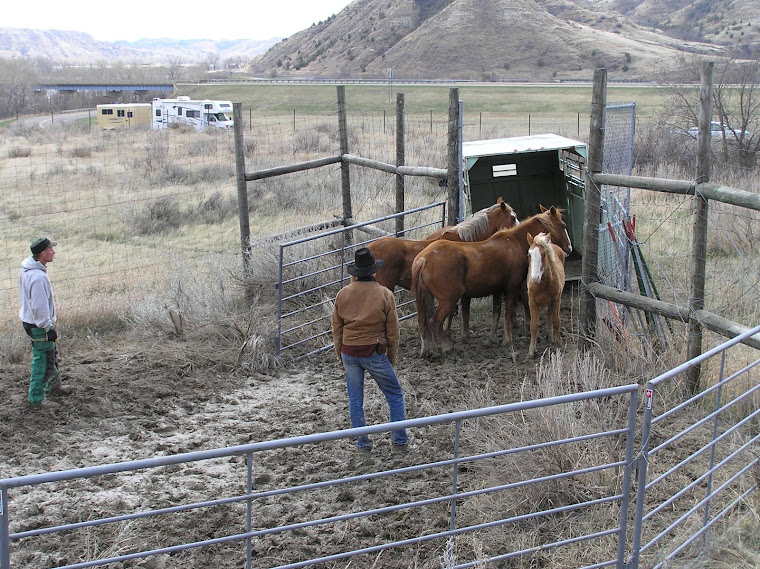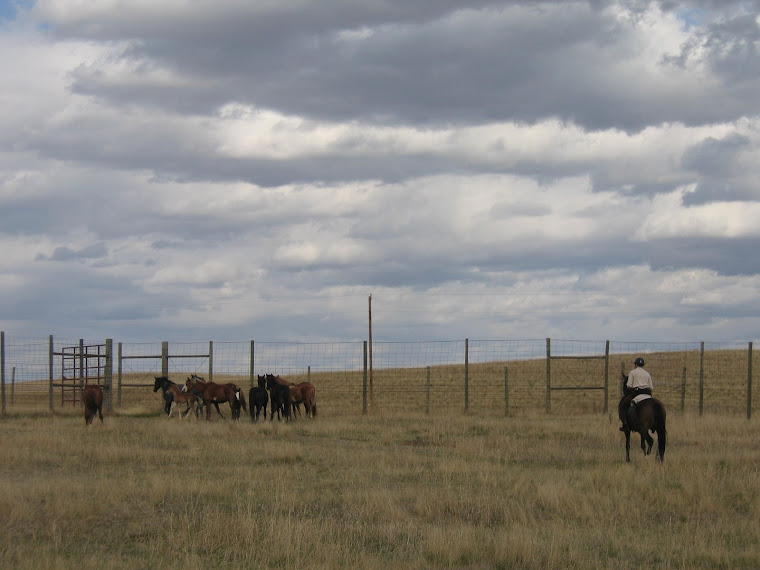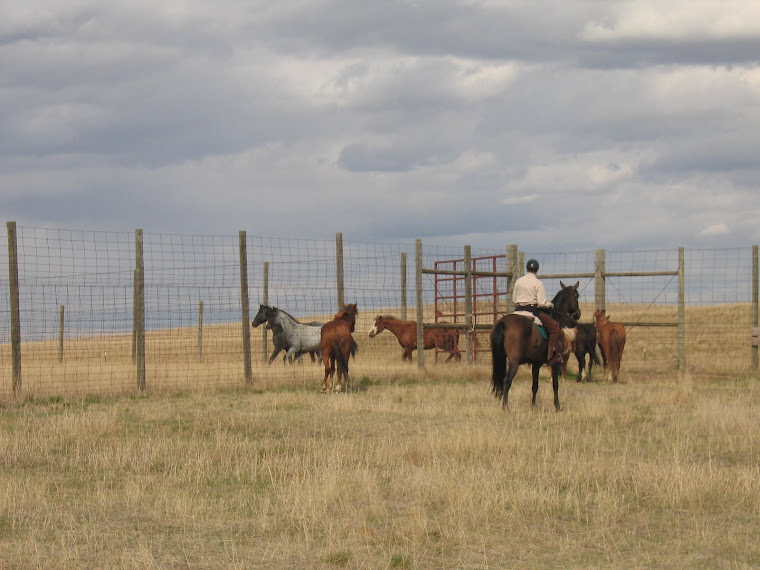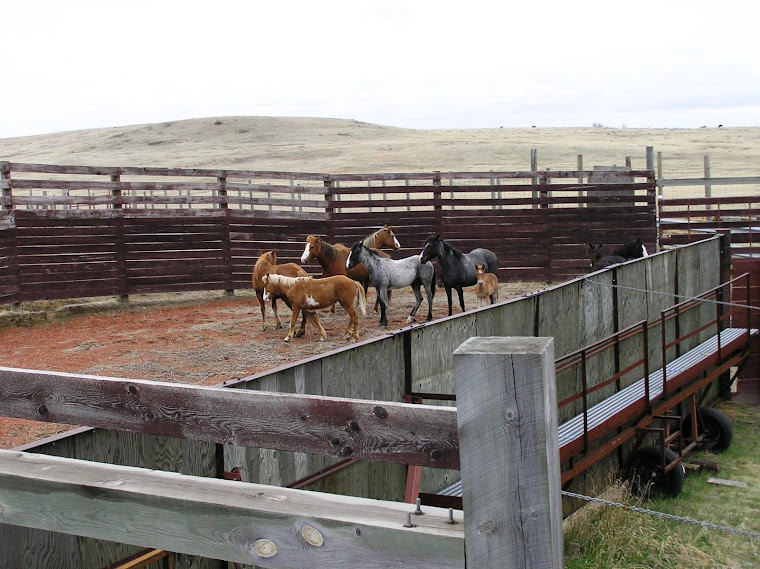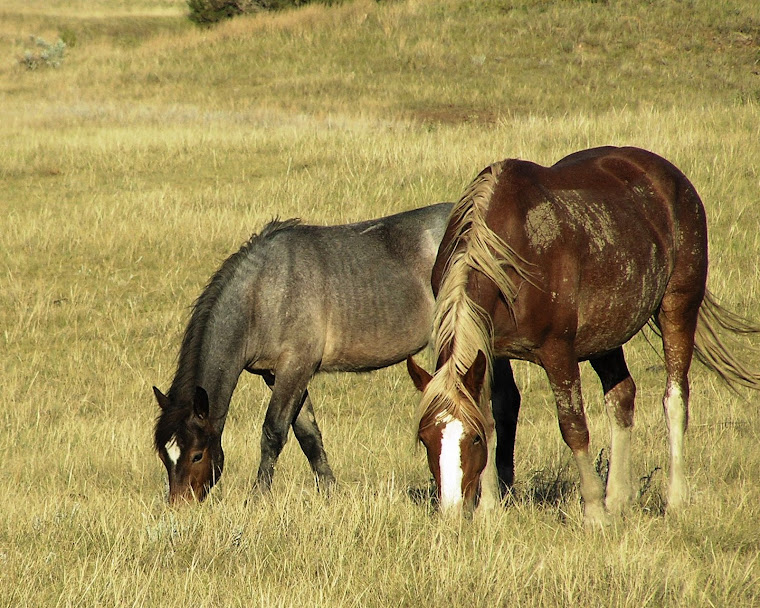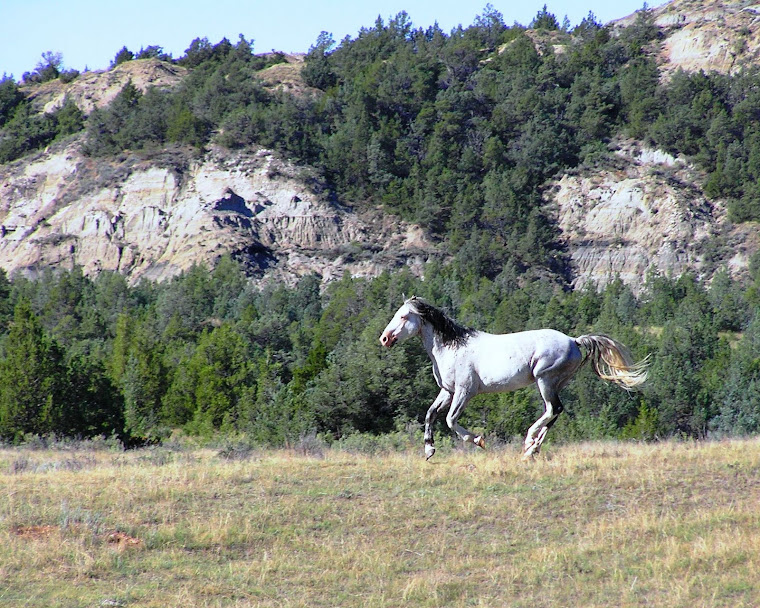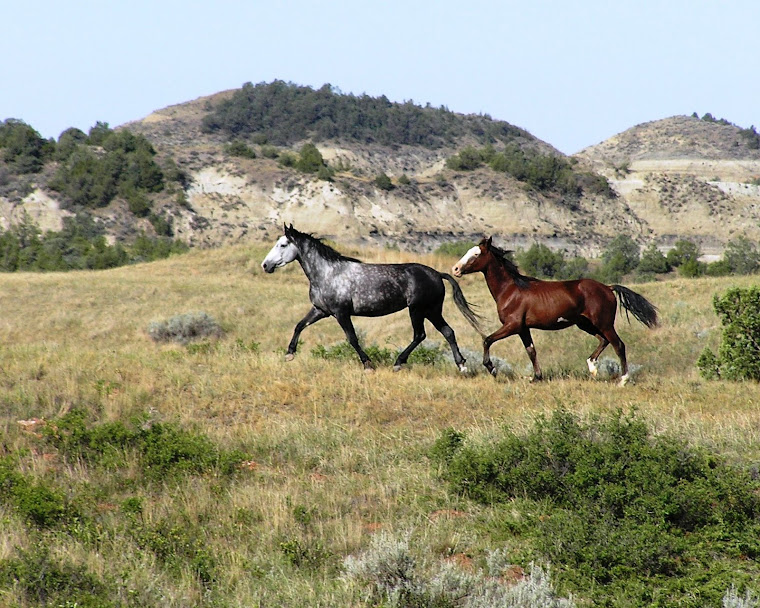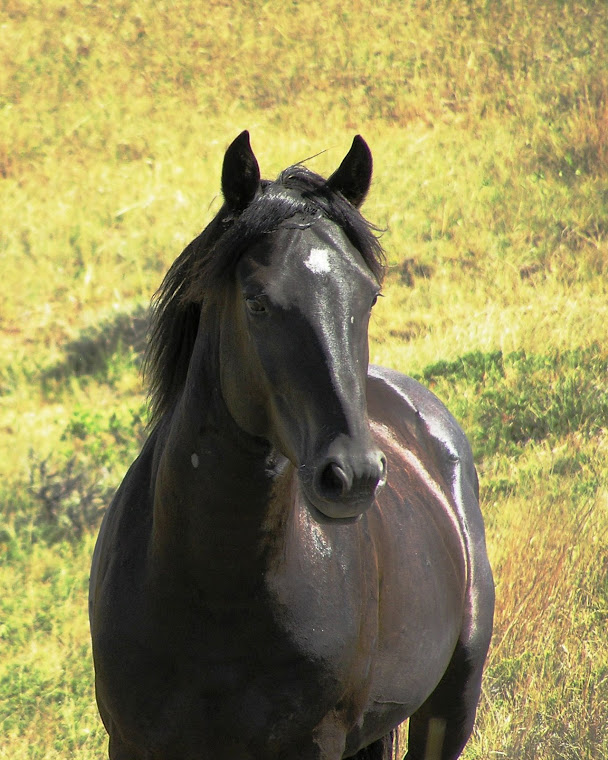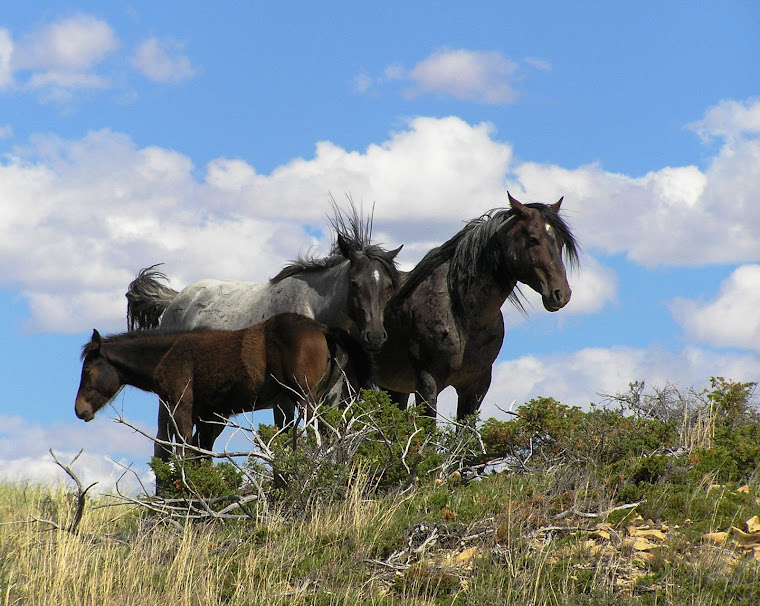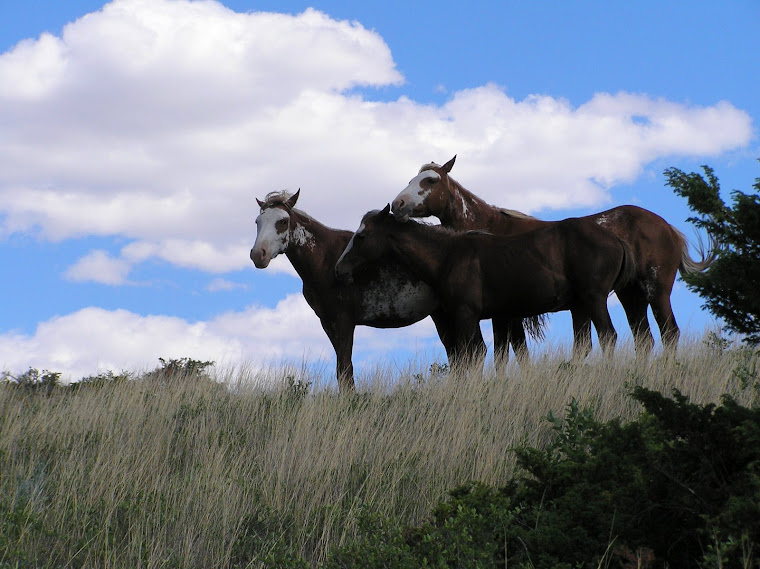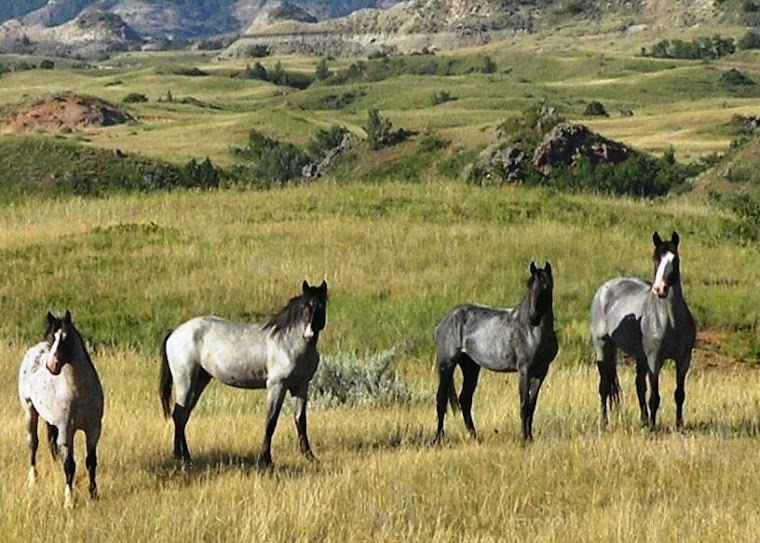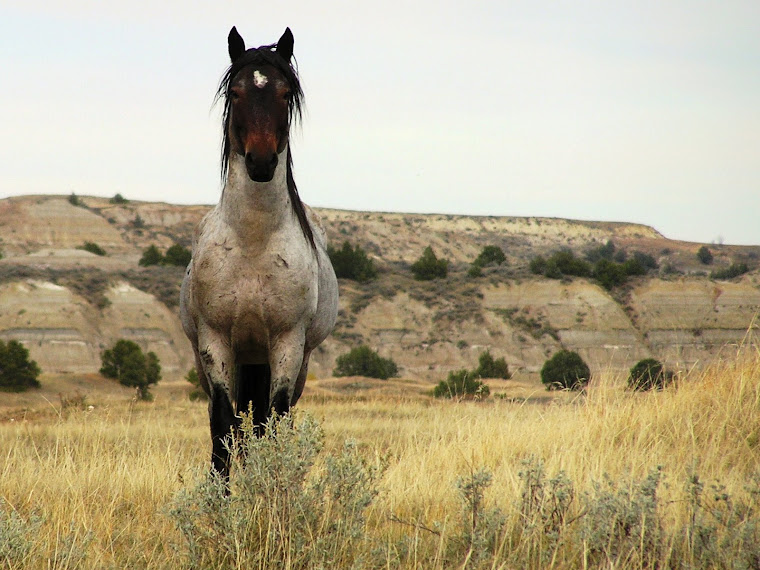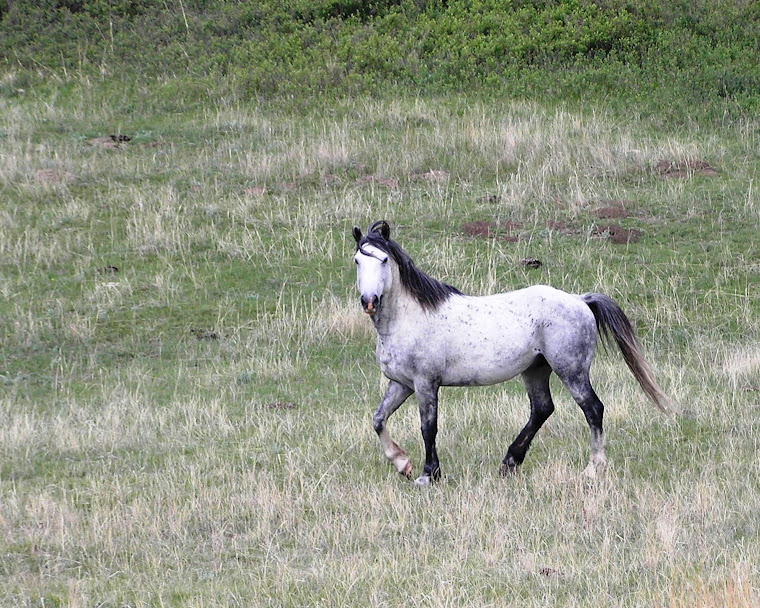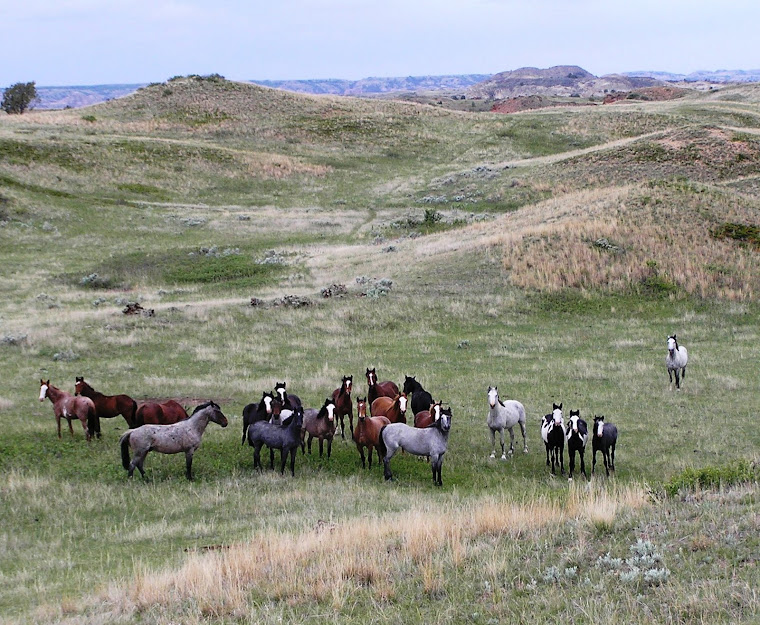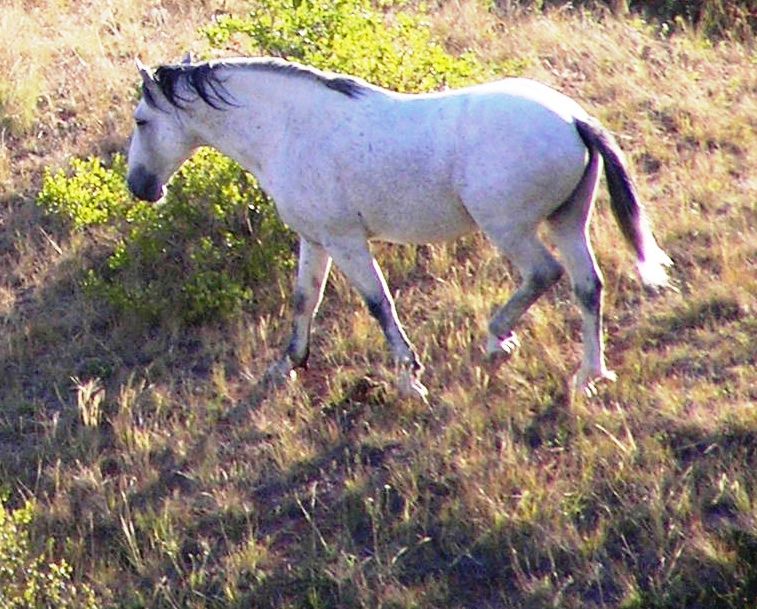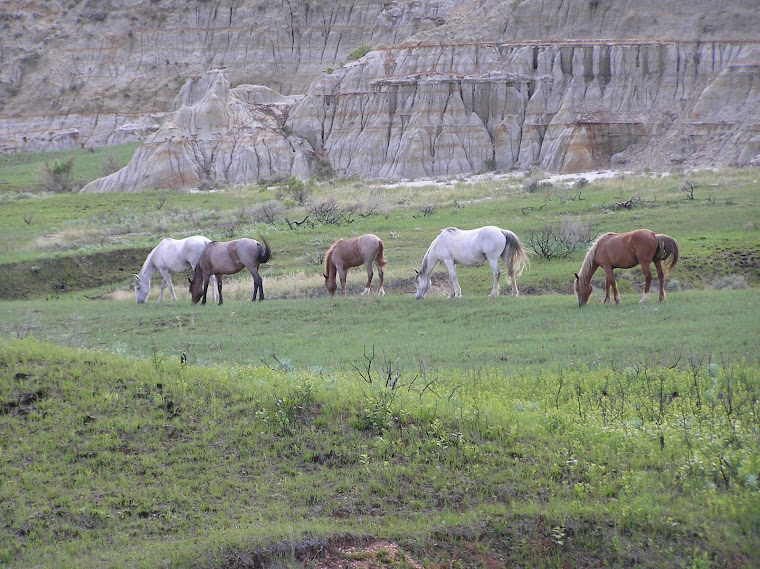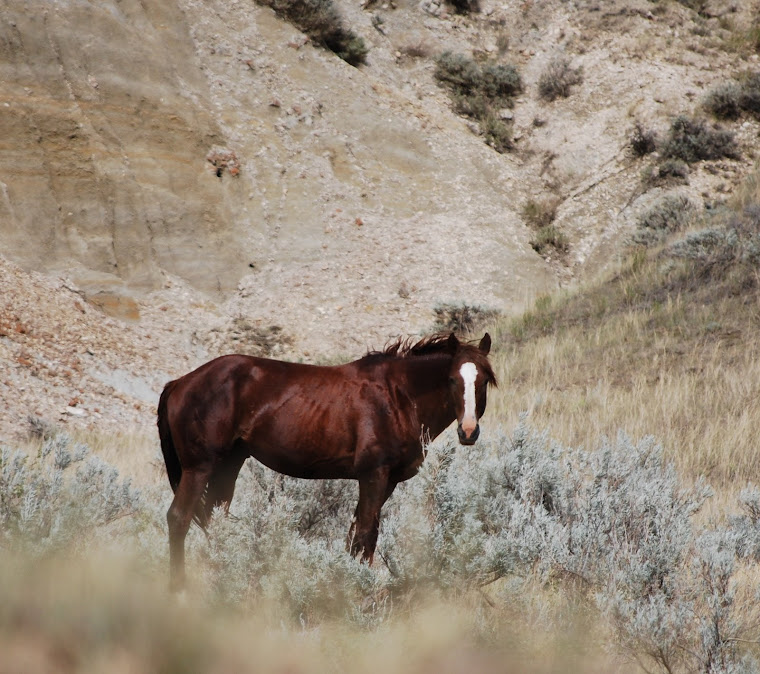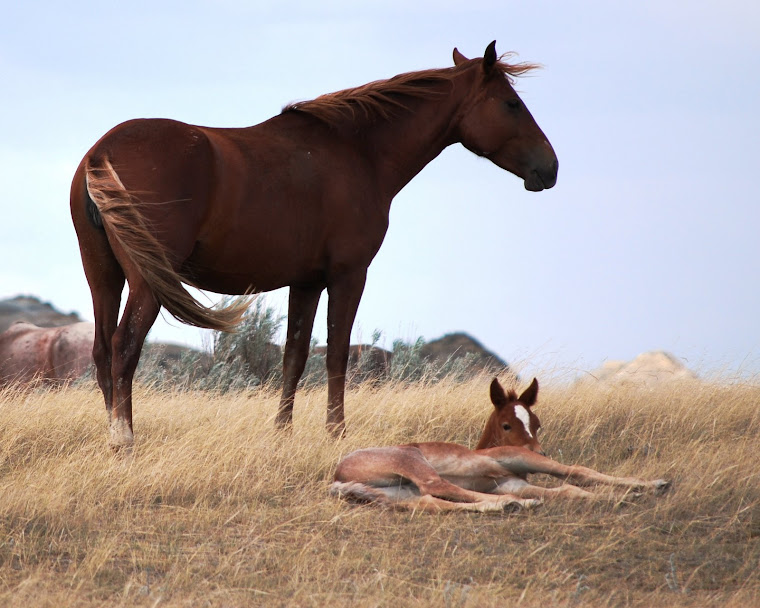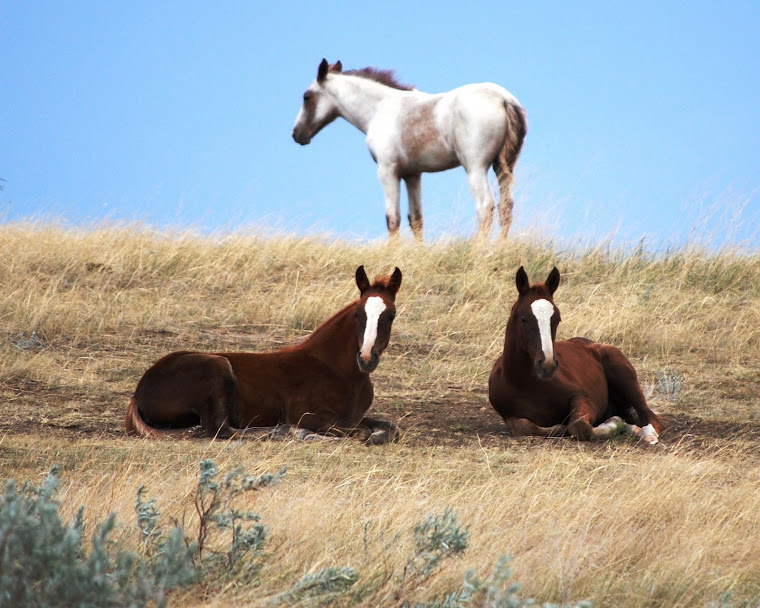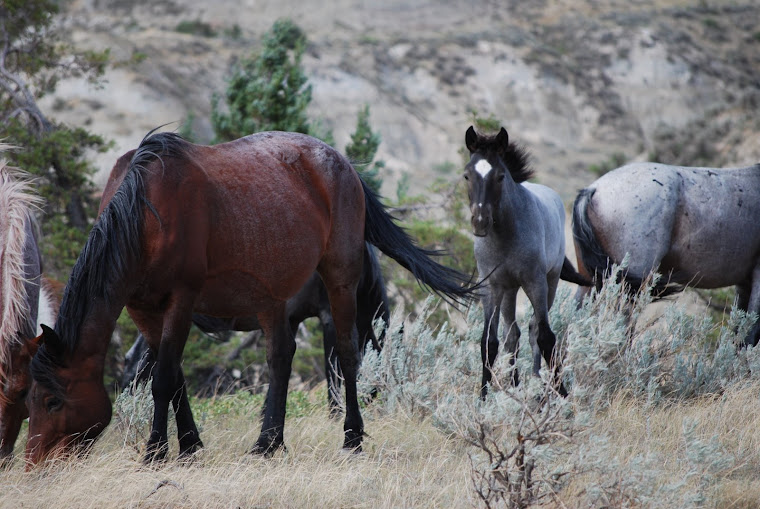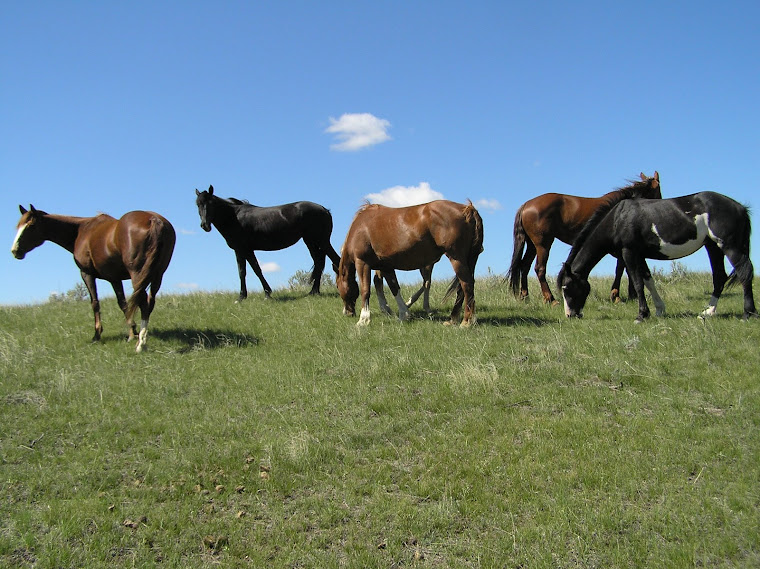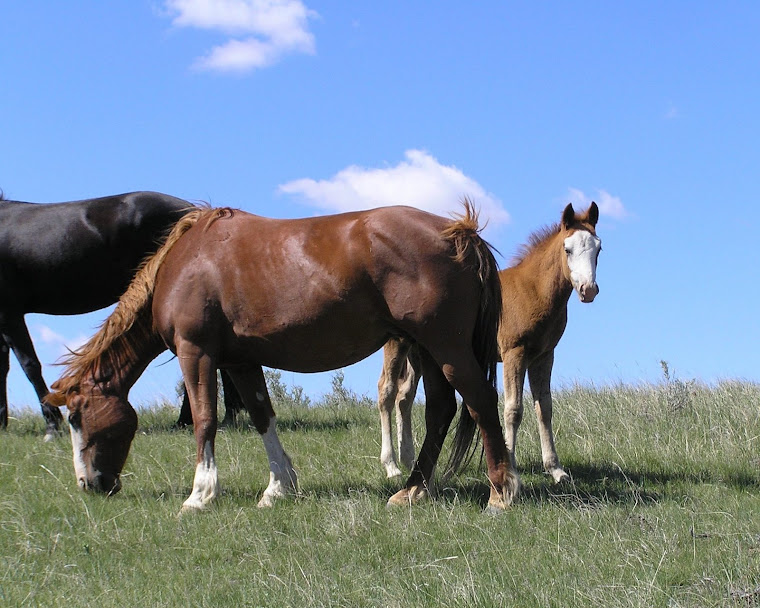“Preliminary
Results with GonaCon Immunocontraceptive Vaccine in Wild Horses at Theodore
Roosevelt National Park Shows Promising Results”
This
statement was released May 14, 2015 by Dr. Dan Baker, of Colorado State
University, to North Dakota Badlands Horse (NDBH), a 501 (c) (3) nonprofit
which advocates for and promotes the free roaming horses of Theodore Roosevelt
National Park (TRNP). NDBH has a
Partnership Agreement with TRNP to assist in low stress captures and placement to
pre-approved homes of those removed
horses.
Dr. Baker added the following:
“Researchers
from Colorado State University, in collaboration with resource managers at
Theodore Roosevelt National Park (TRNP), North Dakota began a research
investigation in 2009 to evaluate the effects of an immunocontraceptive
vaccine, known as GonaCon, on reproduction and side-effects in free-ranging
horses. Initial results indicated that while the vaccine was safe for pregnant
females and developing fetus and had no adverse effects on social behaviors, it
was only about 50% effective in reducing foaling rates over a two – year
period. This is not nearly effective enough to manage the growth rate of most
populations of free-ranging wild horses.
In an
attempt to improve the effectiveness of this contraceptive, researchers
re-immunized previously vaccinated mares at a scheduled roundup at TR in 2013. Results
of preliminary foaling rates of treated mares in 2015 are remarkable and
encouraging. To date (edited to read-September 1 2015), not a single mare that was re-vaccinated with
GonaCon in 2013 has delivered a foal this season whereas almost 70% (17/25) of
untreated mares have already done so. It’s still too early to confirm
infertility in these mares but if these results persist for the duration of
this breeding season and beyond, researchers will need to address the question
of how long does GonaCon suppress fertility in TR horses and are there any
long-term side-effects of this vaccine treatment. Unfortunately, long-term funding
for this research has not been forthcoming and researchers are seeking
financial support from government agencies and private foundations to continue
this important and promising effort.” Dan L. Baker, PhD, Affiliate Faculty, Department
of Biomedical Sciences, Animal Reproduction and Biotechnology Laboratory, Colorado
State University
Blake McCann, Wildlife
Biologist, Theodore Roosevelt National Park stated that “these preliminary
results are very promising. It is hoped that this research will continue
to be funded so that all aspects of GonaCon as a potential horse population
management tool may be understood. The park will issue a news release on the
study at the conclusion of the 2015 foaling season, when definitive results
have been obtained.”
Three NDBH Board of
Directors have been Field Technicians with this project. NDBH is honored to be a part of this
groundbreaking research.
Funding has been found to continue this important research in the coming years. It is imperative that those who are responsible for wild horse herds throughout the country and the world, have more effective and safer tools to use in keeping populations manageable.
Funding has been found to continue this important research in the coming years. It is imperative that those who are responsible for wild horse herds throughout the country and the world, have more effective and safer tools to use in keeping populations manageable.
Marylu
Weber, NDBH President




